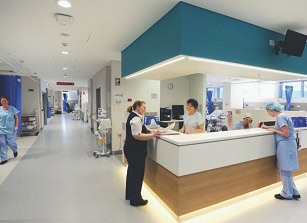The inquest into the death of JP (https://coroners.nsw.gov.au/coroners-court/download.html/documents/findings/2020/FINDINGS_-_JP.pdf) is a sad case which involves the suicide of an involuntary patient in a mental health unit at Tamworth Hospital. JP was admitted to Tamworth Hospital Mental Health Unit on 12 October 2017. She attempted suicide on 16 October 2017. She sadly suffered a hypoxic brain injury during her suicide attempt and later died on 19 October 2017.
The inquest explored issues including the importance of communication, clear treatment plans and frequent observations and re-assessment in mental health settings. During her stay at the mental health unit, JP was placed on 15-minute observations. Despite this, JP had not been observed for a period of 35 minutes before she was found having attempted to commit suicide. This provided her with ample time and opportunity to attempt to commit suicide. The Coroner acknowledged that if JP had been observed every 15 minutes, the suicide opportunity would still have been there. However, the Coroner found that the policies and protocols are important for safety and welfare of mental health patients and are designed to mitigate the risk that they will harm themselves.
In considering the observations that were actually undertaken, the inquest heard that a nurse had not been available to take over when another nurse was moved to a different section of the ward. This meant that no one observed JP during the 35 minutes before she attempted suicide. While it is impossible to say that any one change in circumstances would have prevented JP‘s death, it is arguable that if someone had been in a position to take over and observe JP, then the opportunity to commit suicide would have been more limited.
The Coroner was critical of the planning and communication to JP in relation to her discharge. It was left to a registered nurse to communicate to JP that she was being discharged on the morning that she was due to be discharged. JP was told she was being discharged before she had been reviewed and re-assessed. The Coroner considered that: “It is possible (but of course not certain) that the outcome would have been different had a more considered approach been taken that morning to the task of communicating with JP about a possible discharge.” The Coroner ultimately found that there were adequate policies in place with respect to communicating discharges and transfer of care to inpatients and that the staff responsible for caring for JP had not followed those policies.
The Coroner noted that the Hunter New England Local Health District, as responsible for Tamworth Hospital, had changed their policies to ensure that relieving nurses shifts were covered by their colleagues. Such change, while brought about in the most tragic of circumstances, was welcomed by the Coroner.
The inquest into the death of JP highlights the issue of adequate staffing and observations in mental health units. The findings highlight the importance of adherence to local policies and procedures in any medical setting, but particularly in acute settings such as mental health wards.
It is clear from the findings of the inquest into JP that if simple steps were taken such as following policies and clear communication between clinicians and patient, then JP’s life may not have ended in the manner in which it did.
Get in touch with us
Our experienced medical law team has acted for many clients in relation to preventable deaths occurring in healthcare settings.
At Turner Freeman, we have specialist medical negligence lawyers who will assess your case and provide personalised advice regarding your legal entitlements. Our medical negligence lawyers are located across NSW including in our offices in Parramatta, Sydney, Wollongong, Newcastle and Toronto.
If you or someone you know has suffered as a result of medical negligence, we encourage you to call us on 13 43 63 to speak with one of our medical law experts.
